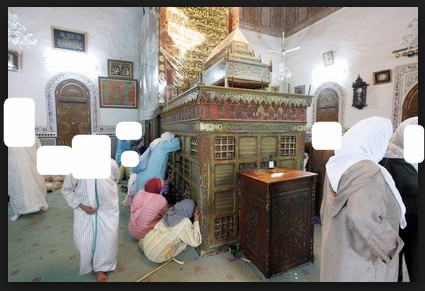 ‘Minhaj al-Sunnah’ (the full Arabic title of the book: منهاج السنة النبوية في نقض كلام الشيعة والقدرية), or ‘The Methodology of the Prophetic Sunnah in Refuting the Statements of the Shia and the Qadariyyah’, stands as one of the many masterpieces by Shaykh al-Islam Taqi al-Din Abu al-Abbas Ahmad ibn Abd al-Halim ibn Abd al-Salam al-Numayri al-Harrani, commonly known as Ibn Taymiyyah (may Allah have mercy upon him).
‘Minhaj al-Sunnah’ (the full Arabic title of the book: منهاج السنة النبوية في نقض كلام الشيعة والقدرية), or ‘The Methodology of the Prophetic Sunnah in Refuting the Statements of the Shia and the Qadariyyah’, stands as one of the many masterpieces by Shaykh al-Islam Taqi al-Din Abu al-Abbas Ahmad ibn Abd al-Halim ibn Abd al-Salam al-Numayri al-Harrani, commonly known as Ibn Taymiyyah (may Allah have mercy upon him).
Ibn Taymiyyah was of Arab and Iranic-Kurdish descent
Continue reading Minhaj al-Sunnah by Ibn Taymiyyah in the English language!












 Shaykh Imran b. Ali al-Harithi al-Shafi’i ( للعَلاَّمة عِمْرَانَ بْنِ عليِّ بْنِ رِضْوَانَ الحارثيِّ الشَّافِعيِّ الفَارِسِيِّ اللِّنْجِيِّ) was an Athari-Shafi’i scholar of Arab-Persian descent from the beautiful south of Iran, Hormozgan, the city of
Shaykh Imran b. Ali al-Harithi al-Shafi’i ( للعَلاَّمة عِمْرَانَ بْنِ عليِّ بْنِ رِضْوَانَ الحارثيِّ الشَّافِعيِّ الفَارِسِيِّ اللِّنْجِيِّ) was an Athari-Shafi’i scholar of Arab-Persian descent from the beautiful south of Iran, Hormozgan, the city of 

































